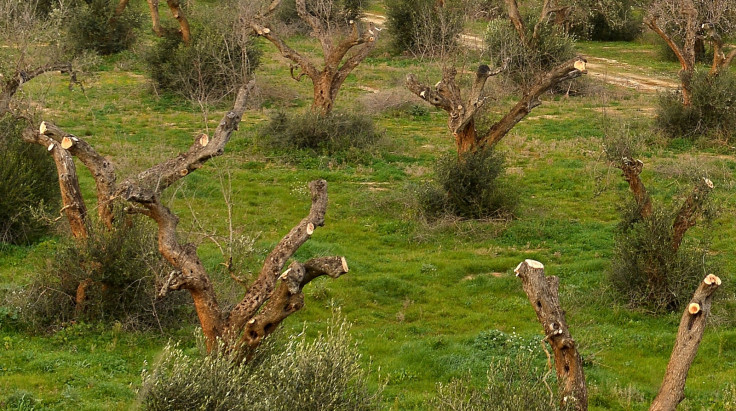British gardens threatened by 'game changing' disease already ravaging Europe
Deadly Xylella fastidiosa has attacked a wide range of plants across Europe, wiping out entire olive groves in Italy.

Plants are at risk from a "game changing" disease threatening to cut a deadly swathe through British gardens.
Outbreaks of Xylella fastidiosa has attacked a wide range of plants across Europe, wiping out entire olive groves in Italy.
A study by the European Food Safety Authority found the disease is capable of infecting over 300 plant species.
The Royal Horticultural Society (RHS) warned gardeners that the disease could arrive in the UK through imported stocks.
Dr Gerard Clover, head of plant health at the RHS, warned it was probably only a matter of time before it spreads to Britain.
He said: "Xylella is a game-changer for gardeners and the horticultural industry and it is vital that we understand its potential impact. The question for the UK is not 'if' but 'when' the UK will have its first outbreak of the disease."
He added: 'It could change the face of the countryside like ash dieback and Dutch elm disease, but this disease affects everything from trees to herbaceous perennials and grasses.
In the UK, oak trees, elms, cherries and lavender plants are thought to be most at risk.
Xylella first appeared in Europe in 2013, spreading from the US and Taiwan through imported plants.
The Xylella fastidiosa bacterium kills plants by contaminating vessels they use to transport water.
Infected plants show such symptoms as scorching and wilting of their foliage, but this can often be mistaken for more common problems like drought or frost damage. The disease is transmitted by insects such as leafhoppers and froghoppers.
Emergency measures are in place in parts of France, Germany, Spain and Italy, where close to a million olive oil trees have been destroyed, causing olive oil shortages last year.
All plants inside a 100m radius of an infected plant must be destroyed, followed by restrictions on movement of plants within a three-mile boundary for up to five years.
Britain's Environment Secretary Michael Gove said in October the disease "poses a serious threat to our plants, trees and horticulture sector".
A spokesperson for the department added: "That is why this year we have pressed hard at EU level for increased protections against Xylella, in order to prevent the devastating disease reaching our shores, and these were approved in October and came into force this month."






















